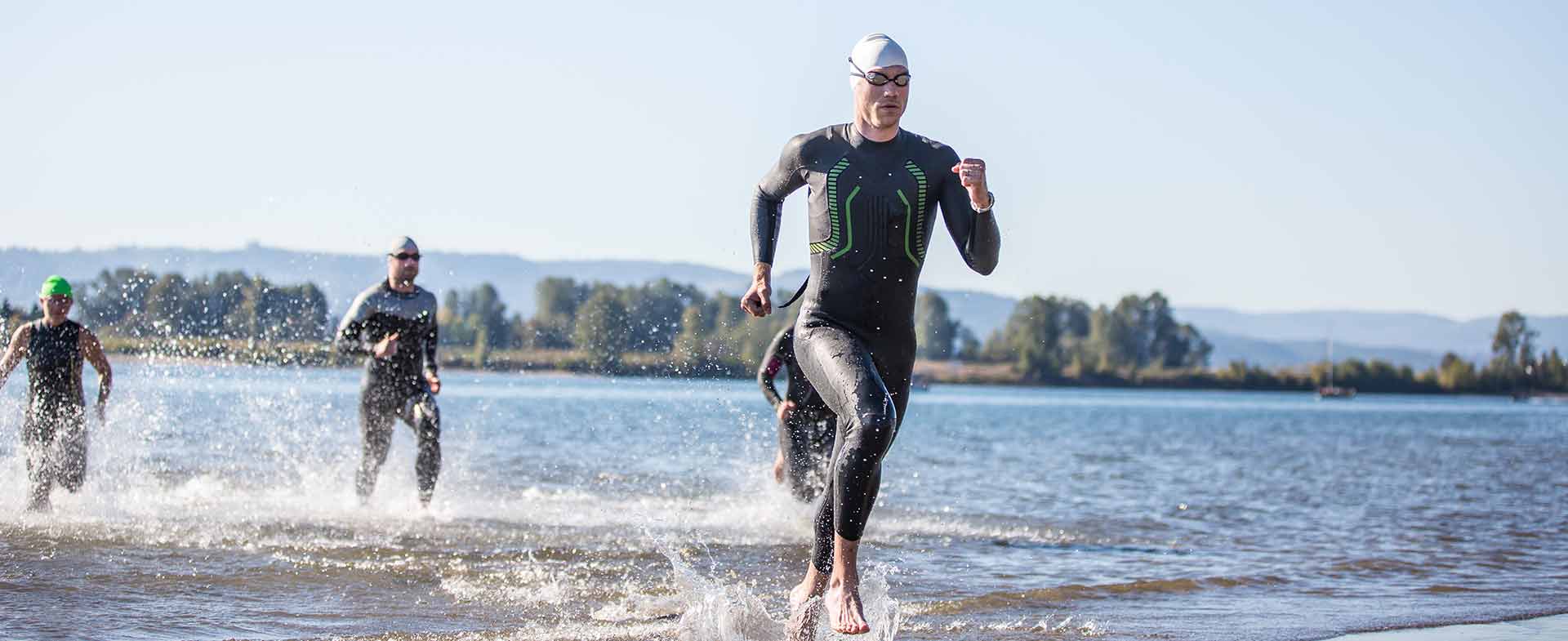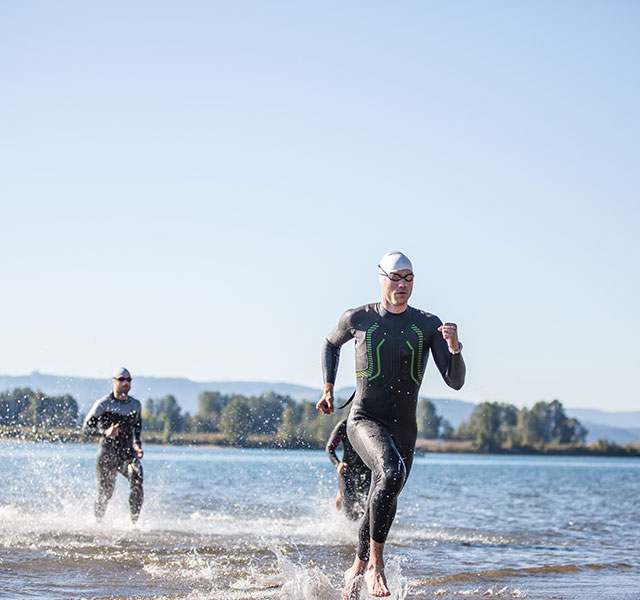Suddenly there seem to be more people driving around with those 50K or 100K stickers on their car windows or sporting clothing emblazoned with the Ironman logo. Those of us looking at these extreme athletes typically have one of two reactions: Either you think they’re crazy—or you want to join their ranks.
“These types of endurance races aren’t for everyone,” says Nick Parkinson, M.Ed., supervisor of athletic training and sports performance at Henry Ford Health. “But if you put in enough time and the proper training, it can be within reach for many people.”
What Are Endurance Races?
As running a marathon becomes almost commonplace, more athletes and recreational runners are looking to go longer distances. An ultramarathon typically refers to any race that’s longer than the 26.2 miles of a traditional marathon. The shortest of these would be a 50K (50 kilometers). “That’s only about five miles longer than a marathon, making it a reasonable goal for anyone who’s able to complete a marathon,” says Parkinson.
But endurance race distances just keep going up from there. There are 50-mile, 100-kilometers, 100-miles and beyond.
The other main category of endurance races is the Ironman triathlons. A full Ironman race consists of a 2.4-mile swim, 112 miles on a bike and then a full 26.2-mile marathon distance run.
Setting A Goal And Training For It
If you’re healthy enough to train, there’s no reason not to aim big. “With the proper training and prep, an ultra-distance is something many people can accomplish,” says Parkinson (who has himself completed numerous ultras). And no matter what distance you’re aiming for, setting a goal is the first step.

“It can be helpful to look at different training plans and even talk to other people who’ve trained for the race you’re considering,” says Parkinson. “You’re working toward a really big goal, but you also want to make it attainable.” That means taking your lifestyle into account and deciding how much time you can realistically devote to your training.
You can find lots of ultra and Ironman training plans online. “Sift through what’s out there to find a plan that suits you,” Parkinson adds. That could mean shifting workouts, modifying the training to suit what your body needs and can handle. “Thinking just about your total mileage is a mistake many people make, and it can lead to injury.”
Instead, he suggests focusing on the quality of your workouts, mixing it up with cross-training and adding strength training to improve your leg, core and upper body strength. “All of those stabilizing muscles need to be strong in order to handle the added stress an ultra race puts on your body,” he says.
It’s Not Just About The Running (Or Biking Or Swimming)
Getting ready for an extra-long, extra-tough endurance event means more than just getting a lot of exercise. Another key piece is fueling your body properly throughout your training. “A lot of people don’t think about how this kind of training will affect their nutritional needs,” says Parkinson.
You need to experiment to find foods and drinks that work to fuel you during long workouts. But you also have to reconsider your overall diet. “Make sure you’re getting enough calories, ample protein and good hydration,” he says. “Your body needs quality nutrition in order to repair itself between workouts.”
Your body also needs rest in order to repair itself, prevent injury and give you energy for the next training session. “Don’t make the mistake of thinking you need to run every day just to get in a certain number of miles per week,” says Parkinson. “That can result in overtraining.”
Enlist Lots Of Support
Although you definitely need your own mental toughness to pull off an endurance event, even the toughest athletes need plenty of support. “Training for anything—but especially something big—is always easier with a buddy,” says Parkinson. “Find a partner or a training group who share similar goals.” They can help encourage you, keep you motivated and hold you accountable on those days you’d rather stay in bed than run.
Parkinson also suggests turning your big race into a fun plan for the whole family. “Choose an event that’s someplace you’d like to go and plan a vacation for after the race,” he says. That can help keep everyone’s motivation up.
Finally, recognize that your goal is huge, and don’t be too hard on yourself if you ultimately fall short. “You’re attempting something that very few people can do,” says Parkinson. And there’s always another race you can aim for!
Reviewed by Nick Parkinson, M.Ed., AT, ATC, TSAC-F, supervisor of athletic training and sports performance at Henry Ford Health. Learn more about Nick.



